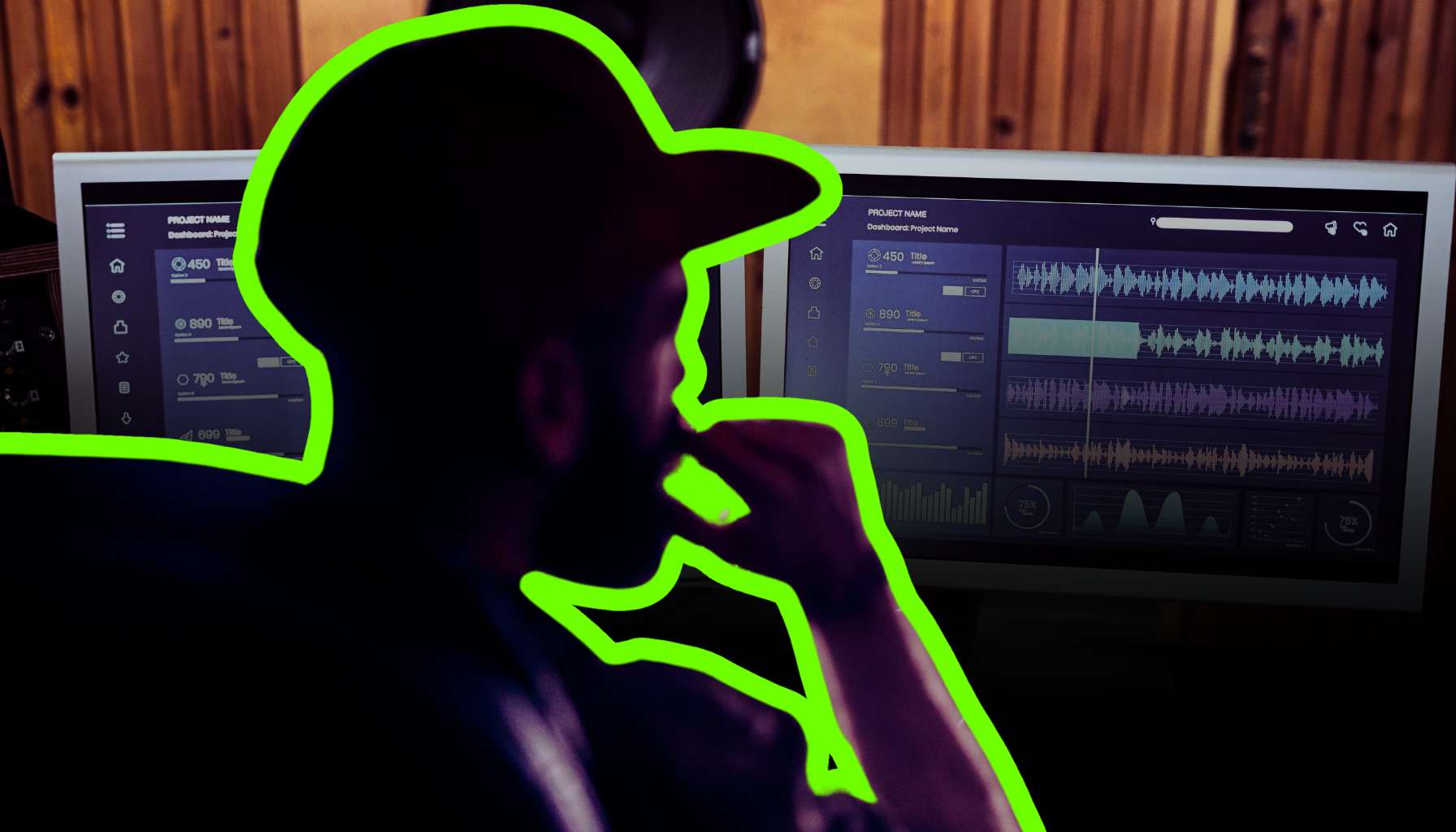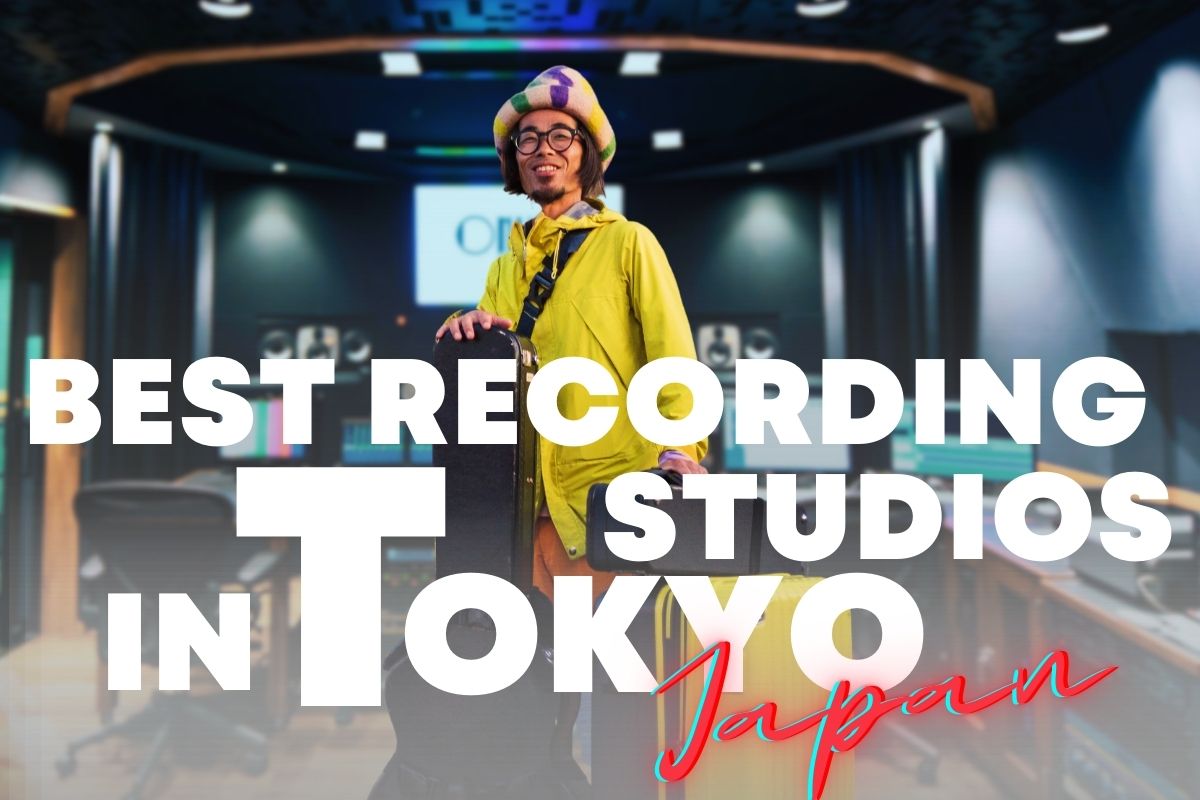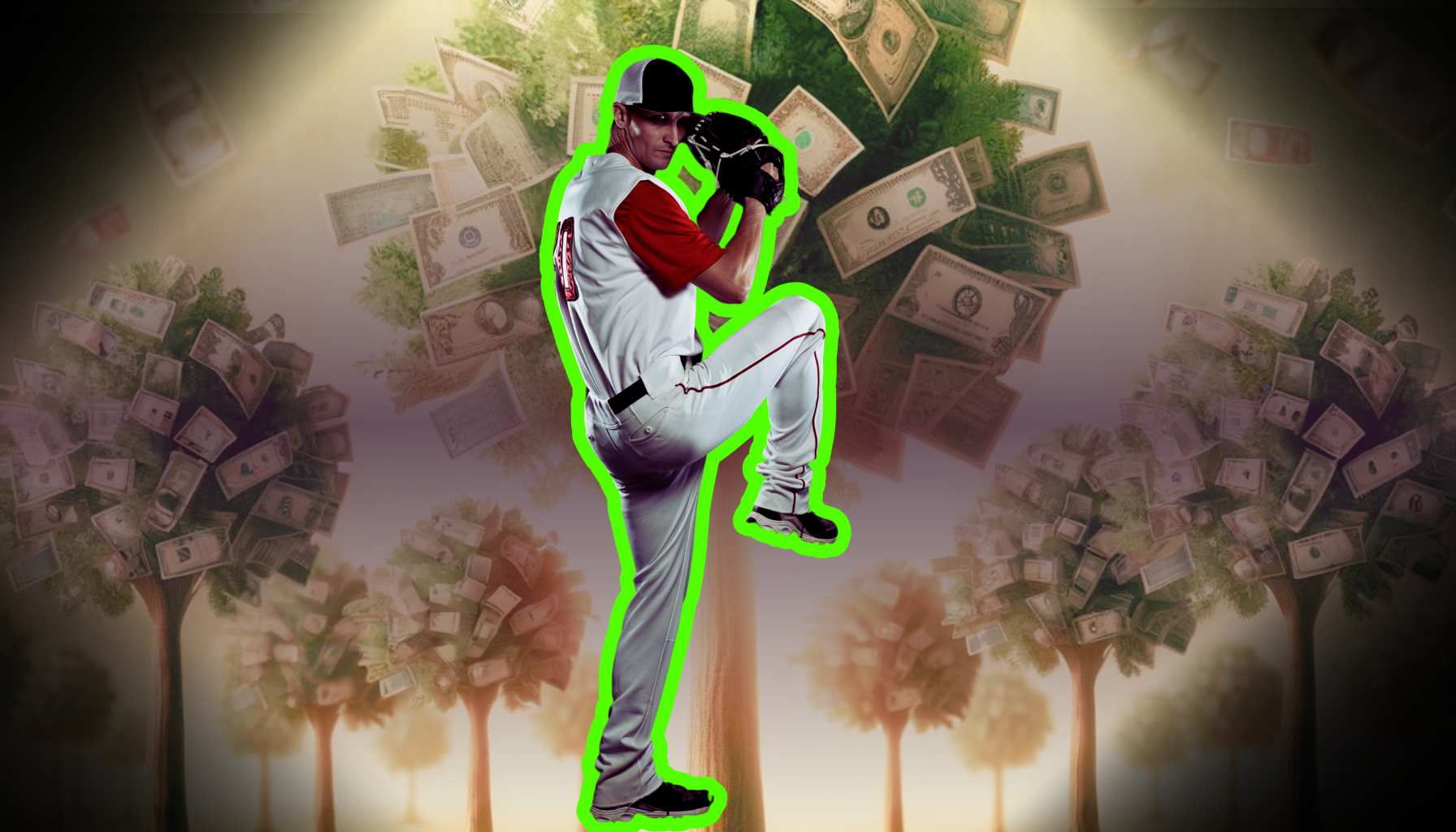The Role of Music Publishing for Producers
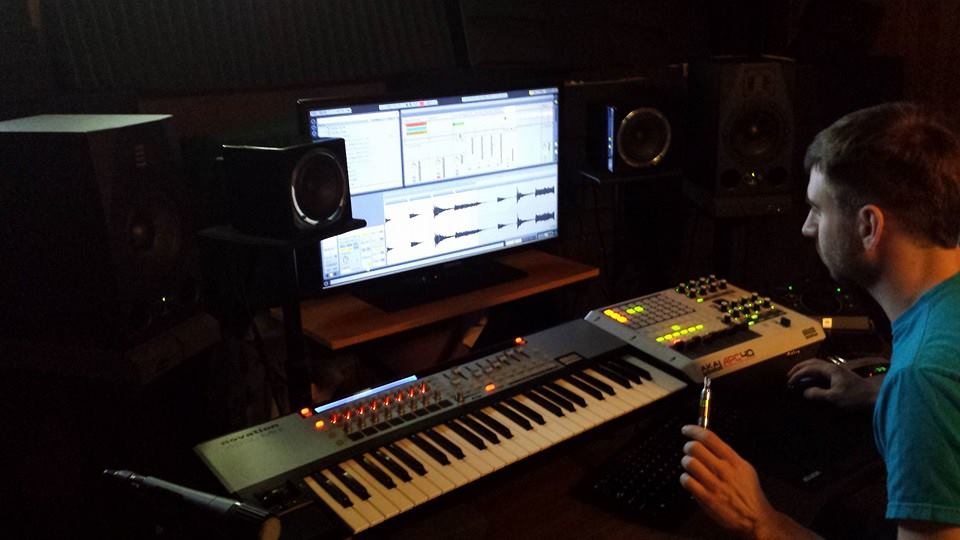
Buckle up, beatmakers and studio gurus, because diving into the world of music publishing is like unraveling the mystery of a music box—complex, yet producing the sweetest rewards once you understand its inner workings.
For the savvy producer, knowing the ins and outs of music publishing is as crucial as dropping that killer bassline right on the beat. After all, before you can shake the world with your tunes, you’ve got to ensure your tracks don’t get lost in the cacophony of copyright claims and missed royalty checks.
Defining Music Publishing and its Importance
Let’s kick things off with a groove. Publishing, in the not-so-poetic sense, is the business of monetizing compositions. Every time your melody is downloaded, streamed, covered, or blasted through the speakers at a thrift shop changing room, there’s money to be made. And as a producer, you’re not just the wizard behind the soundboard; you’re a stakeholder in the creative gold that flows from it.
Understanding the Producer’s Stake in Music Publishing
Picture this: you’re backstage at the Grammys—okay, daydream over. But here’s something real—you crack open that royalty statement and find figures that spark all kinds of joy. As a producer, your stake in the songs you help create can be solidified through publishing rights. This means getting a fair share of the pie you helped bake, and who doesn’t like a slice of that sweet, sweet royalty pie?
Different Types of Publishing Deals
Now, onto the menu of publishing deals. Think of them like craft cocktails; each comes with its unique blend of ingredients and potential buzz.
Traditional Publishing Agreements
The classic—you hand over your songs to a company, and they work their magic to get them out there. In exchange, they’ll collect and split royalties with you. Simple? Sometimes. Effective? Like a well-tuned guitar.
Co-Publishing Deals
Ready to take the duet to another level? Co-publishing is when you and the publishing company co-own the copyright, like a musical Thelma & Louise, only with less cliff-driving and more revenue-driving.
Administration Deals
For those who want to keep full ownership but need a hand with the nitty-gritty, an admin deal is like hiring a personal assistant for your songs. You manage the creative decisions, they handle the paperwork.
Hybrid and Alternative Publishing Agreements
And for the avant-garde, there are as many arrangements as there are genres. Hybrid deals sprinkle a little bit of this, a little bit of that, crafting a unique arrangement that fits your sonic style like that custom leather jacket you save for special gigs.
As we transition from understanding the array of publishing deals that can transform your basement demos into global anthems, we smoothly shift gears towards knowing what’s under the hood. In the next section, dust off your reading glasses because we’re dissecting the key components of a publishing deal, down to the last note.
Think of it as tuning your guitar before a gig; you need the right information to hit every note perfectly—and this includes knowing about the rights, royalties, and fine print that’ll make sure your bank account stays in tune with your ambitions. So warm up those vocal cords and stretch those fingers; it’s about to get technical, but trust me, knowledge is the best kind of music to your ears.
Key Components of a Publishing Deal
Now that you’ve tuned your guitar and know the landscape of publishing deals, it’s time to start playing. Our next set bridges the basics of publishing to the practical chords that comprise the core of a publishing deal. Understanding rights and royalties, financial nuances, and the geographical terrain of your contract isn’t just rock ‘n’ roll wisdom—it’s your financial backbone as a producer.
Understanding Rights and Royalties
So, what’s in the magic potion of publishing? First up, royalties – not the kind that wave from balconies but the type that fills your wallet. Mechanical royalties come from album sales and streaming, while performance royalties jive into your accounts whenever your tunes flirt with the airwaves or twirl on a dancefloor. Then there’s ‘sync’, the golden child of royalties, lining your pockets when your music scores a first kiss in a movie or a dramatic car chase in a TV series.
Mechanical Royalties
Mechanical royalties might sound like something a robot would pay, but they’re essential grease for the wheels of the music machine. Every time someone legally reproduces your music, whether through physical sales, downloads or streaming services, a portion pings back to you.
Performance Royalties
Imagine your jam pumping in a coffee shop, at a festival, or on the radio. Each spin is a coin drop into your piggy bank, thanks to performance royalties. As for live shows, that sweet, sweet sound of money is music to your ears, all the while fans groove to your beats.
Synchronization Royalties
Meanwhile, synchronization royalties are like winning a ticket to Willy Wonka’s factory, but instead of chocolate, you get cash every time your track syncs up with visual media. TV, movies, video games—it’s the payday playlist when your tunes meet the silver screen.
Advances and Financial Aspects of Publishing Deals
Stepping onto the stage, we have advances—essentially a loan against your future royalties. This up-front cash can bankroll your next record or keep ramen on the menu, but don’t forget the caveat: they’re recoupable. You won’t see another dime until the advance is paid back from your royalty stream.
How Advances Work
Advances are the music industry’s advance of faith in you. Think of it as a bet by your publisher that you’ll be the next big hit parade. But like all bets, there are stakes—your royalty payments are put on the back burner ’til the tab’s settled.
Recoupment Policies
And in the fine print, recoupment policies detail just how you’ll pay back that advance. These aren’t hide-and-seek rules but more like knowing the rules of the road before you turn on the ignition.
Duration and Territory
Your publishing deal isn’t just grounded by notes, but by time and space too. The term of agreement is your timeline—how long the publisher gets dibs on your tunes before you can shout “next!” The geographic scope, on the other hand, maps out where on this pale blue dot your songs can fill ears and bank accounts.
Term of Agreement
Legalese for “how long is this shindig?” The term of agreement sets the stage: one album? Three? Till you’re both ready to part ways? Make sure you’re not locking in your greatest hits until you’re old and gray unless that’s your platinum plan.
Geographic Scope of the Deal
From Peoria to Paris, your music’s reach could be endless or exclusive. Geographic scope determines whether you’re a hometown hero or a global phenomenon—location, location, location! With these fundamental chords struck, you’re halfway to composing a hit. But even with the blueprint, you’ve got to evaluate your needs and how they riff with what’s on offer.
Evaluating Your Needs and Negotiating a Publishing Deal
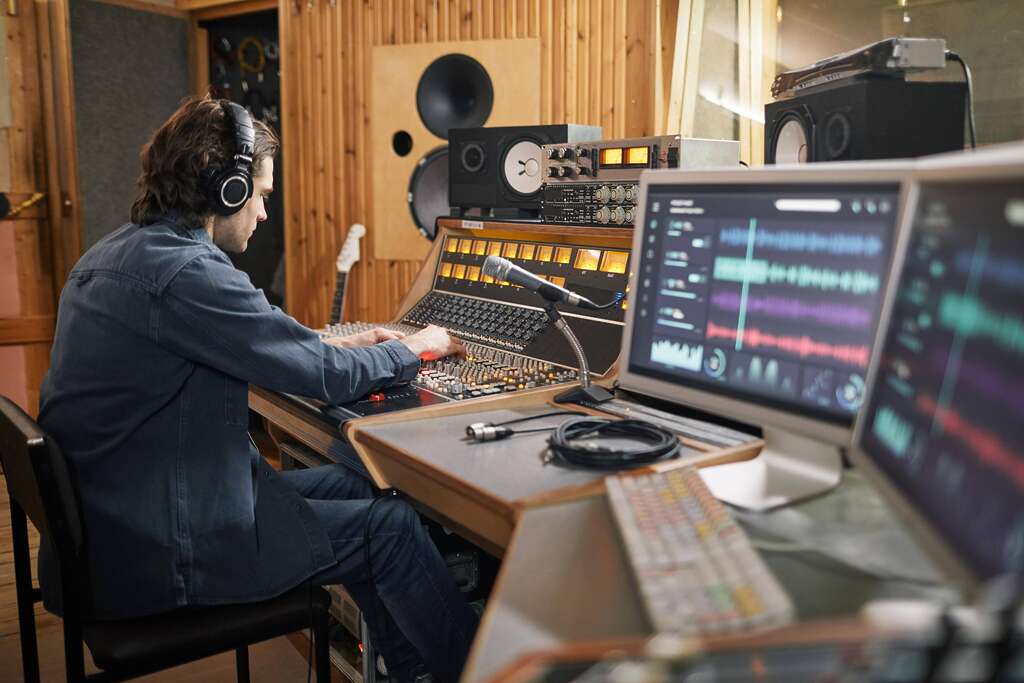
Before you ink that deal and pop the champagne, let’s take a minute to consider: is this deal the “Stairway to Heaven” or will it leave you singing the “Folsom Prison Blues”? A producer’s path through the enchanted forest of music publishing is fraught with twists, turns, and the occasional big bad wolf disguised as a contract clause. So, capes on, let’s navigate this tale with eyes wide open, ensuring your personal “Happily Ever After” in the music biz.
Self-Assessment: Gauging Your Career Stage and Goals
Before you can play the game, you need to know what winning looks like for you. Are you the fresh-faced artist ready to sell out world stadiums, or the underground mixer looking to shape the sound of the next decade from your studio cave? Equally, are you the ambitious wonder-kid seeking the Midas touch of a big-name publisher, or the indie maverick marching to the beat of your own lo-fi drum? Your career stage, resources, and what you can realistically bring to the reverb-laden table of a publisher all come into play.
Career Considerations before Pursuing a Publishing Deal
It’s time to hold up the mirror and ask the tough questions. Scrutinizing your career ambitions is not just navel-gazing; it’s essential. What’s your five-year plan, and does a publishing deal propel you there or tie an anchor to your rocket ship? The music industry doesn’t do participation trophies, so get real with your aspirations.
Setting Personal and Professional Objectives
Hone in on your goals like a laser beam at a Pink Floyd show. Whether it’s spreading your sound far and wide or securing the bag, having clear benchmarks will keep you from getting swept away in the current of industry jargon and shiny promises.
The Negotiation Process
Here’s where the rubber meets the road, or more apropos, where the needle drops on the record. Negotiation is an art, perhaps as nuanced as your music itself. It’s a dance where you step on a few toes but also spin your partner to the applause of onlookers.
Key Terms and Clauses to Negotiate
When negotiating, every term sings a note in the symphony of your contract. Pay attention to the crescendos of the recoupment clauses and the diminuendos of the advance. Knowing your sync rights from your mechanicals is the difference between headlining the main stage and being stuck at the merch booth.
The Role of Music Attorneys and Managers
A maestro needs a baton, and in this concerto of legalese, music attorneys and savvy managers are it. Their insights will shine a spotlight on the fine print that could otherwise dim your future earnings. Gear up with a team who can read a contract like a virtuosic sheet of music. As the applause fades, it’s time to step into your next role: creative caretaker of your sound.
The coming act in this opera is all about how your fundraising crescendo when the contract is signed. In the next section, we march to the beat of the drum that is the Producer’s Role and Responsibilities in a Publishing Deal.
It’s where we discover how, like any skilled producer, you must balance the scales of creative control with delivering the goods on time, flames, and all. Let the anticipation drum roll, and may your inner producer rise to meet the managerial maestro within.
The Producer’s Role and Responsibilities in a Publishing Deal
Now that you’ve waded through the swamps of self-assessment and emerged with a clear vision of your musical journey, let’s talk turkey—or better yet, let’s talk tunes and the responsibilities that come with the sweet, sweet deal of music publishing. After all, publishing deals aren’t just about cashing in royalties for your killer beats; they come with a setlist of obligations and creative inputs that could tie your artistic hands if you’re not careful. Before you put ink to paper, strapping on the ‘producer’ title, ensure you’re not also signing away the soul of your music.
Maintaining Artistic Integrity
Imagine a world where every meal is vanilla ice cream. Sounds great, until you’re dreaming of a sizzling steak or a fiery curry. The same goes for your music—diversity and spice is the lifeblood of creativity. As a producer, you’re the secret sauce in the studio kitchen; preserving your artistic integrity in a publishing deal ensures the sizzle doesn’t fizzle. Maintain a say in where and how your music is used—no one wants their epic love ballad backing a commercial for toilet cleaner.
Involvement in Song Placement and Usage Decisions
You’ve crafted the crescendo, the breakdown, and the perfect drop. Your music is ready to be the soundtrack of someone’s life—or a hit TV show’s dramatic cliffhanger. Having a say in song placement and usage isn’t just an ego trip; it can dictate whether your tune becomes an immortal anthem or a one-off novelty. Make certain your contracts leave room for your voice to be heard when it comes to these crucial decisions.
Fulfilling Obligations and Deliverables
In the symphony of a publishing deal, your role defines more than the tempo; it sets the whole darn composition. Your deliverables are the high notes and the low notes of this opus. These are the beats and bars etched onto your staff: meeting project deadlines, producing content quality that rivals Beethoven’s Fifth, and ensuring that collaborative efforts with songwriters don’t devolve into a cacophony but rather remain a harmonious hit-making session.
Meeting Project Deadlines and Quality Expectations
Your music isn’t some fly-by-night operation; it’s Mozart mixed with a touch of Motown, genius into grooves. But if you don’t meet the deadlines set in your publishing deal, you’ll be as relevant as an 8-track at a Spotify streaming party. Timely delivery of quality tracks is crucial not just to uphold your end of the agreement but to ensure the music machine keeps spinning out gold records.
Collaborative Responsibilities with Songwriters and Artists
Let’s face it, collaboration is to music what breathing is to life. When you’re knotting up a publishing agreement, remember it’s more than just a solo gig. You’re the conductor, making sure the whole orchestra—songwriters, artists, instrumentalists—play in sync. Your deal should specify your collaborative responsibilities without stifling the creative chemistry that ignites when brilliant minds meet over a stave. As producers, you steer the ship, but your compass needs to be set on making the most from your melody mint.
That’s why next, we’re turning the dials up to ‘maximizing income from a publishing deal’. It’s one thing to make music that moves the masses, but it’s another to ensure those moves monetize. From tracking royalties to tapping into sync licensing’s golden touch, we’ll show you how to make sure every note you drop adds a penny in the piggy bank. Buckle up, maestros, we’re about to turn up the financial fader and dive deep into the groove of greenbacks.
Maximizing Income from a Publishing Deal

In the rock concert of your career, think of a publishing deal as headlining the main stage—it’s where the spotlights shine and dollars rain. It’s one thing to sign on the dotted line and quite another to wring every melodious drop of revenue from the deal inked with your John Hancock. Let’s face it, rock stars gotta eat too, and royalties are your bread and butter, even if your guitar licks are already buttery enough.
Tracking and Collecting Royalties
It’s showtime, and every note you play has its price tag. But who keeps track when the crowd is going wild? Enter Performing Rights Organizations (PROs)—the backstage managers ensuring every riff resonates with a ka-ching. Aligning with PROs isn’t just a smart move; it’s your financial lifeline. These maestros monitor when and where your music is played, from the airwaves to the elevator, ensuring that you’re compensated for every hum, strum, and beat dropped.
The Role of Performing Rights Organizations (PROs)
Imagine each PRO as a meticulous librarian, cataloging each time your song gets a spin. They’re the unsung heroes ensuring your songs aren’t just sung but that they ring the cash register bell with every play. Whether it’s BMI, ASCAP, or SESAC stateside, or PRS across the pond, hitching your wagon to the right PRO can make the difference between champagne toasts and flat beer.
Understanding the Flow of Royalty Payments
Understanding royalties is like tuning your guitar by ear—daunting to some, second nature to others. There’s a symphony of streams: mechanical, performance, and potentially synchronization royalties. Each follows its own rhythm of payout schedules and percentages. It can seem like a labyrinth, but navigate this maze effectively, and your publishing deal could be the treasure map to a royalty goldmine.
Exploring Additional Revenue Streams
The spotlight’s on sync as an unsung hero lurking in the encore. When your tune wiggles into movies, commercials, or games, that’s when synchronization licenses come out to play. Sync deals can be lucrative, pump up your brand, and let’s be honest, make you feel like a rockstar when your jam kicks in as the protagonist struts down the street.
Sync Licensing Opportunities
In the sync world, it’s not just about having the right song; it’s about having the song right when a music supervisor needs it. It’s like being the right kinda crazy at just the right time. License your music for sync, and you’re not just a musician; you’re the maestro of mood, stirring emotions in scenes from heartbreaks to heists.
Compilations, Samples, and Covers
Groove to the beat of passive income with compilations, samples, and covers. These revenue remixes can surprise you, like finding forgotten cash in your stage jacket pocket. When another artist samples your beastly baseline or belts out your chorus on their cover, you’re not just flattered, you’re funded—and the curation of compilation albums can introduce your tunes to entirely new audiences. Once the stage lights of your publishing deal set the royalties rolling, there’s an encore that needs your attention: registration with PROs and collection agencies. Next up, it’s all about the organizations that ensure you get your due, whenever and wherever your music plays. From the paperwork to the paychecks, these are the minds behind the money, translating airplay into your payday. So put down your guitar pick and pick up your pen, because we’re tuning into the fine print of music’s money machine.
The Involvement of PROs and Collection Agencies
Navigating the echoey corridors of the music industry, one may find the mystique around PROs (Performing Rights Organizations) and collection agencies as perplexing as a prog rock band’s concept album. But fear not, intrepid producer—unlocking the lucrative treasure chest of royalties is a quest worth embarking upon.
This is where your hard-won earnings from mechanical and performance royalties become more than just abstract figures—they’re the standing ovation to your studio symphony.
Registration and Affiliation with PROs
Sure, you might think of PROs as the gatekeepers of the mystical realm of royalty collection, and you wouldn’t be entirely off-key. These maestros play a pivotal score in ensuring that twirl of the dial, that flick of the playlist toggle, translates into crisp currency. By affiliating with the right PRO, you’re planting your flag on the royalties landscape, decreeing ‘I shall passively earn while I actively create’.
Benefits of Registering with PROs
Solidify your alliance with a PRO, and bask in the knowledge that while you’re kneading the dough of your next sonic loaf, they’re out there, hawks on the wind, tracking down every time your tune echoes in a café or pirouettes through a podcast. Your creations are your children, and these agencies are the nannies ensuring they’re behaving profitably in the wild.
Choosing the Right PRO for Your Needs
Got a case of choice paralysis? Remember, not all PROs dance to the same rhythm. Some may be more attuned to the indie scene, while others strut to the beat of the top 40s. Gauging their distribution sprawl and what genres they specialize in can save you from signing up with a ballet fiend when you’re a breakdance buff.
Working with Collection Agencies
What happens when your music sprints across borders, gallivanting wherever the World Wide Web weaves? Enter collection agencies—the international cousins of your homeland PROs. These globe-trotters are indispensable for scooping up your foreign royalties, ensuring that your sonic seeds reaped bountiful harvests worldwide.
How Collection Agencies Facilitate International Royalty Collection
Collection agencies are like your international music ambassadors, smoothing over the convolutions of global rights management. With a myriad of territorial laws and regulations, a trusty agency can mean the difference between a healthy foreign royalty stream and a trickle that barely moistens the bottom line.
The Need for Additional Representation
Consider them the specialized task force in your royalty collection army—while your PRO might be a Jack-of-all-trades locally, collection agencies are the international aces up your sleeve. They are crucial in traversing the intricate nuances of various territorial regulations that could easily trip up the uninitiated.
As we pull back the curtain on these shadowy figures of the music financial theater, we see that they’re not so much lurking creatures as they are unsung heroes, orchestrateurs of cash flow.
But remember, music mogul, even heroes need a guiding light. Thus, we’re not done unraveling this opus—our next act sees us considering long-term impact and career trajectory as influenced by your publishing deal choices. The right alliance can catapult your career skywards, so let’s explore how to ensure that our publishing decisions aren’t just hits, but classics that stand the test of time.
Considering the Long-Term Impact of Publishing Deals
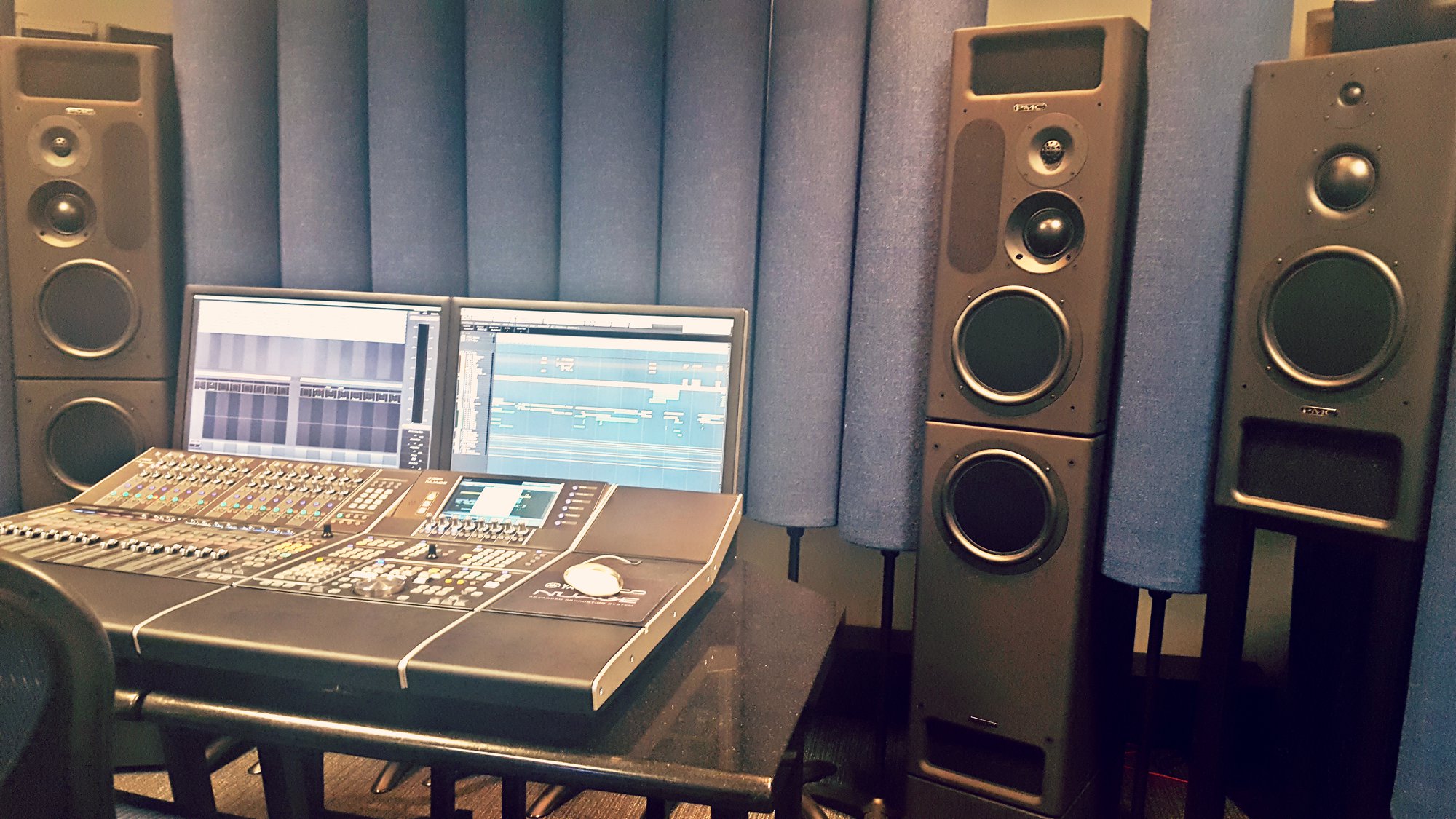
Signing on the dotted line of a music publishing deal can feel like belting out the final note of a chart-topping hit—both exhilarating and momentous. But any seasoned vocalist will tell you: the true test isn’t that soul-stirring note; it’s the longevity of your voice. Similarly, for producers, the ripple effects of a publishing deal stretch far beyond initial euphoria, shaping your career and echoing through your artistic legacy. It’s not just about the here and now—it’s about tuning your career’s trajectory to the rhythm of future symphonies.
Career Growth and Development
The right publishing deal is like finding a new band member who’s in it for the long haul—a collaborator who amplifies your sound and propels you to new stages. It’s not just about royalties (though, let’s face it, that’s a sweet melody); it’s about partnership and potential. Your publisher should sync with your rhythm, punctuating your career with crescendos of success and harmonizing with your development as a creative powerhouse.
Building Relationships and Networking through a Publisher
Step into the networking shindig with a publishing deal in your back pocket and watch doors fling open. These connections aren’t just handshakes and head nods; they’re the backers to your concert kickstarter, the execs who’ll punch your elevator pitch to top floor suites. A publisher should be your greatest fan and your connector to the industry’s movers and shakers, tugging the strings that get your music into ears worldwide.
Preparing for Reversion of Rights
While you’re waltzing in the honeymoon phase of your deal, keep one eye on the future, like a chess player contemplating endgame moves. Reversion clauses aren’t just legalese jargon to gloss over; they’re your fail-safe, your backdoor key, should the tides of the music biz turn. Understanding how and when your rights return could mean the difference between a tranquil sunset to your career or a scramble for control over your life’s work.
Understanding the Significance of Reversion Clauses
The reversion clause can be your career’s encore—if you play it right. Think of it as the clause that lets your tunes come home to papa. If your songs were boomerangs, reversion clauses would be the magic that ensures they come whizzing back, ready to be thrown again, under your terms, for your benefit.
Planning for the Future and Life After the Deal Ends
A publisher might be a co-pilot on your musical flight, but eventually, you’ll want to take back the controls. Planning your post-publishing deal existence is vital, similar to staging your comeback tour. Ensure you’re not left in an audience of one once the deal concludes, but rather stepping back into the spotlight, rights in hand, ready to rock the next chapter.
As we strike the final chords of this section, let’s gingerly step away from the introspective and towards the cautionary tales. Common pitfalls await the uninformed—the Icarus wings of the music industry, ready to melt away for those flying too close to the sun without protection.
In the next act, we’ll bring light to these warning signs, transforming them from traps into stepping stones. Picture yourself armoring up with knowledge, ready to sidestep the quicksand and navigate towards the Nirvana of publishing deals, utterly unscathed and wise beyond your albums.
Common Pitfalls and How to Avoid Them
Red Flags in Publishing Contracts
When reviewing publishing contracts, be wary of Restrictive Clauses and Lack of Flexibility that may hinder your ability to work with others or own your music outright. Also, watch for Vague or Ambiguous Royalty Accounting Provisions that could obscure how much you’re paid and how often.
Educating Yourself on Industry Standards
To avoid pitfalls, it’s crucial to stay abreast of Publishing Trends and Practices within the music industry. Furthermore, Seeking Guidance from Experienced Industry Professionals, like a music attorney or manager, can ensure you’re making informed decisions and not overlooking key contract details.
FAQs on Understanding Publishing Deals for Producers
What is a fair percentage for producers in publishing deals?
A fair percentage for producers varies, but typically ranges between 15% to 25% of publishing rights. However, this should be negotiated based on the producer’s level of involvement and contribution to the work.
How long do publishing deals typically last?
Publishing deals usually range from one to several years, depending on the agreement specifics. Single-song deals are often shorter, while catalogue deals may extend for a longer term.
Do I need a music lawyer to review my publishing deal?
Yes, it’s advisable to have a music lawyer review your publishing deal to ensure it is fair and does not exploit your rights or work.
Can a producer have multiple publishing deals at once?
Producers can have multiple publishing deals if they do not conflict in terms of rights and territories. However, exclusivity clauses might prevent this, and careful attention must be paid to contract details.
What are the risks of signing a publishing deal too early in my career?
Signing too early can result in unfavorable terms and may inhibit career growth due to inexperience. Evaluate if the deal aligns with your career trajectory and goals before committing.
How can a publishing deal affect my creative freedom?
A publishing deal might limit creative freedom through restrictions imposed on the type and use of musical works. Ensure terms are clear and negotiate for creative input where necessary.
Should independent producers consider self-publishing?
Self-publishing allows for complete control and can be beneficial for independent producers able to manage the complexities of publishing and rights management.
How does a publishing deal affect my royalties if my music is used in film or TV?
A publishing deal outlines how royalties, such as synchronization fees, are split when music is used in film or TV, impacting the producer’s earnings from such uses.
Can I get out of a publishing deal if it’s not working in my favor?
Exiting a publishing deal can be challenging; terms of contract termination or exit clauses should be meticulously reviewed and negotiated before signing.
What is the role of Performing Rights Organizations in publishing deals?
PROs monitor performance of music and collect royalties on behalf of producers, ensuring they are compensated for public use of their works.
Is it necessary to register with a PRO?
Registering with a PRO is essential for receiving performance royalties generated from public use of your music and can be a significant income source.
What should I consider when choosing a Performing Rights Organization?
Consider genre focus, royalty collection efficiency, and territory coverage when selecting a PRO, ensuring alignment with your music and target audience.








